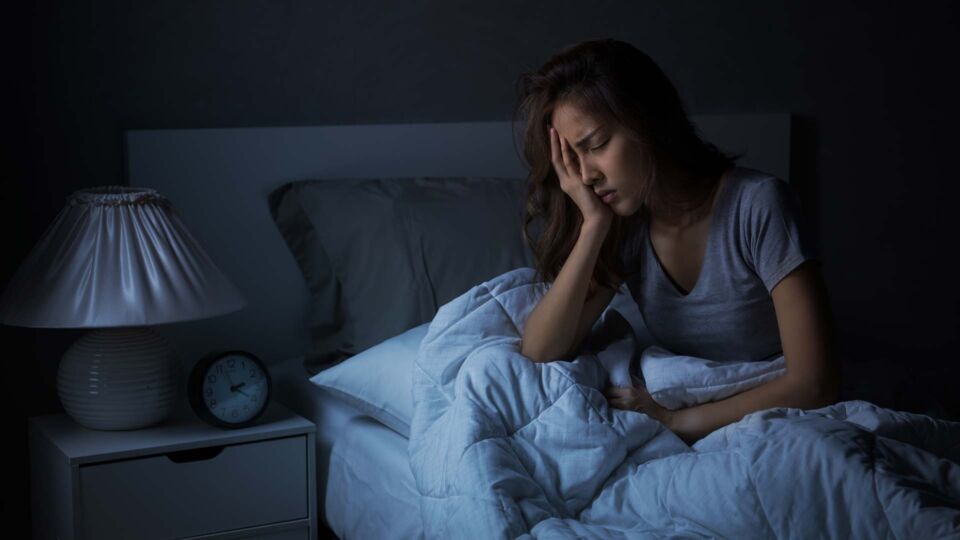Insomnia and Tips on Getting a Good Sleep

What is insomnia and what are the symptoms?
Insomnia is not an illness. It describes a situation or symptom where a person finds it difficult to fall asleep, or wakes in the early hours and could not get back to sleep if sleep comes. A third scenario is that the person cannot sleep, and wakes up easily if he falls asleep. If such symptoms persist, then the consequences are felt prominently during the day, such as fatigue, poor concentration, irritability, daytime drowsiness, depression and agitation.
What are the common causes of this sleep disorder amongst Singaporeans? Are there any statistics or figures to support this?
The World Health Organisation estimated that about 40% of the world’s population suffers from insomnia at some point in their life. Insomnia may be caused by a number of factors, such as medical conditions (e.g. conditions that cause pain, sleep apnea syndromes, effects of substances, endocrine or metabolic diseases, ageing etc.), psychological reasons (e.g. stress, anxiety, depression, post-traumatic stress, schizophrenia etc.), as well as environmental factors (e.g. jetlag, poor habits, change of environmental conditions etc.).
What are its detrimental effects?
Not being able to sleep affects a person’s concentration, memory and mood (e.g. increased irritability). Prolonged sleep deprivation can also lead to disorientation and physical health problems in the longer term.
What medical treatments can patients consider?
Sleep medication should be viewed as a short term measure for sleep problems, and should be used under the advice and close monitoring by your doctor. If you are undergoing a period of stress and find it hard to sleep, do not get overly anxious about your sleep problems, but trust that sleep will return when your body and mind are tired, and that the stress has abated. During this period, listening to soothing and relaxing music during bedtime may be helpful, rather than fretting in bed about being unable to sleep.
For those with prolonged sleep problems, it is more helpful for them to consider addressing sleep problems in a more holistic way, like working with their doctor or psychologist to examine habits and behaviours that may be getting in the way of proper sleep (e.g. engaging in activities that are too stimulating for the brain just before bedtime), making incremental changes that are permitted by the person’s work or lifestyle (and being open to adjust and adapt the strategies as the situation progresses), and developing good sleep habits over time.
If you are depressed or have some psychological disturbance, these conditions may interfere with sleep. Therefore, seeking help with a psychiatrist / psychologist to address those conditions may help improve your sleep.
How common is social jetlag? Is it common for those who sleep in on weekends to feel tired on weekdays?
This is a new term coined by the media used to describe those who are sleep-deprived on weekdays and who catch up on sleep during the weekends, only to find themselves feeling more tired on Monday when they have to return to work in the mornings. It is not a medical condition. Generally, it is more helpful to get adequate sleep regularly, rather than have a boom-and-bust cycle for sleep.
Can you share with us some tips on getting a good rest?
Stick to a sleep schedule
Go to bed and get up at the same time every day, even on weekends, holidays and days off. Being consistent reinforces your body’s sleep-wake cycle and helps promote better sleep at night. If you don’t fall asleep within 15 minutes, get up and do something relaxing. Go back to bed when you’re tired. If you agonise over falling asleep, you might find it even tougher to nod off.
Pay attention to your diet
Don’t go to bed either hungry or stuffed. Your discomfort might keep you up. Limit how much you drink before bed, to prevent disruptive middle-of-the-night trips to the toilet.
Nicotine, caffeine and alcohol deserve caution, too. The stimulating effects of nicotine and caffeine (which take hours to wear off) can interfere with quality sleep. Even though alcohol might make you feel sleepy at first, it can disrupt sleep later in the night.
Create a bedtime ritual
Do the same things each night to tell your body it’s time to wind down. This might include taking a warm bath or shower, reading a book, or listening to soothing music — preferably with the lights dimmed. Relaxing activities can promote better sleep by easing the transition between wakefulness and drowsiness. Be wary of using the TV or other electronic devices as part of your bedtime ritual. Some research suggests that screen time or other media use before bedtime interferes with sleep.
Get comfortable
Create a room that is ideal for sleeping. Often, this means a cool, dark and quiet environment. Consider using room-darkening shades, earplugs, a fan or other devices to create an environment that suits your needs.
Limit daytime naps
Long daytime naps can interfere with night time sleep — especially if you’re struggling with insomnia or poor sleep quality at night. If you choose to nap during the day, limit yourself to about 10 to 30 minutes and make it during the mid-afternoon.
If you work nights, you’ll need to make an exception to the rules about daytime sleeping. In this case, keep your window coverings closed so that sunlight — which adjusts your internal clock — doesn’t interrupt your daytime sleep.
Include physical activity in your daily routine
Regular physical activity can promote better sleep, helping you to fall asleep faster and to enjoy deeper sleep. However, timing is important. If you exercise too close to bedtime, you might be too energised to fall asleep. If this is an issue for you, exercise earlier in the day.
Manage stress
Your sleep is likely to suffer when you have too much to do and too much to think about. To help restore peace to your life, consider healthy ways to manage stress. Start with the basics, such as getting organised, setting priorities and delegating tasks. Give yourself permission to take a break when you need one. Share a good laugh with an old friend. Before bed, jot down what’s on your mind and then set it aside for tomorrow.
Your mattress and pillow can contribute to better sleep, too. Since the features of good bedding are subjective, choose what feels most comfortable to you. If you share your bed, make sure there’s enough room for two. If you have children or pets, set limits on how often they sleep with you — or insist on separate sleeping quarters.



